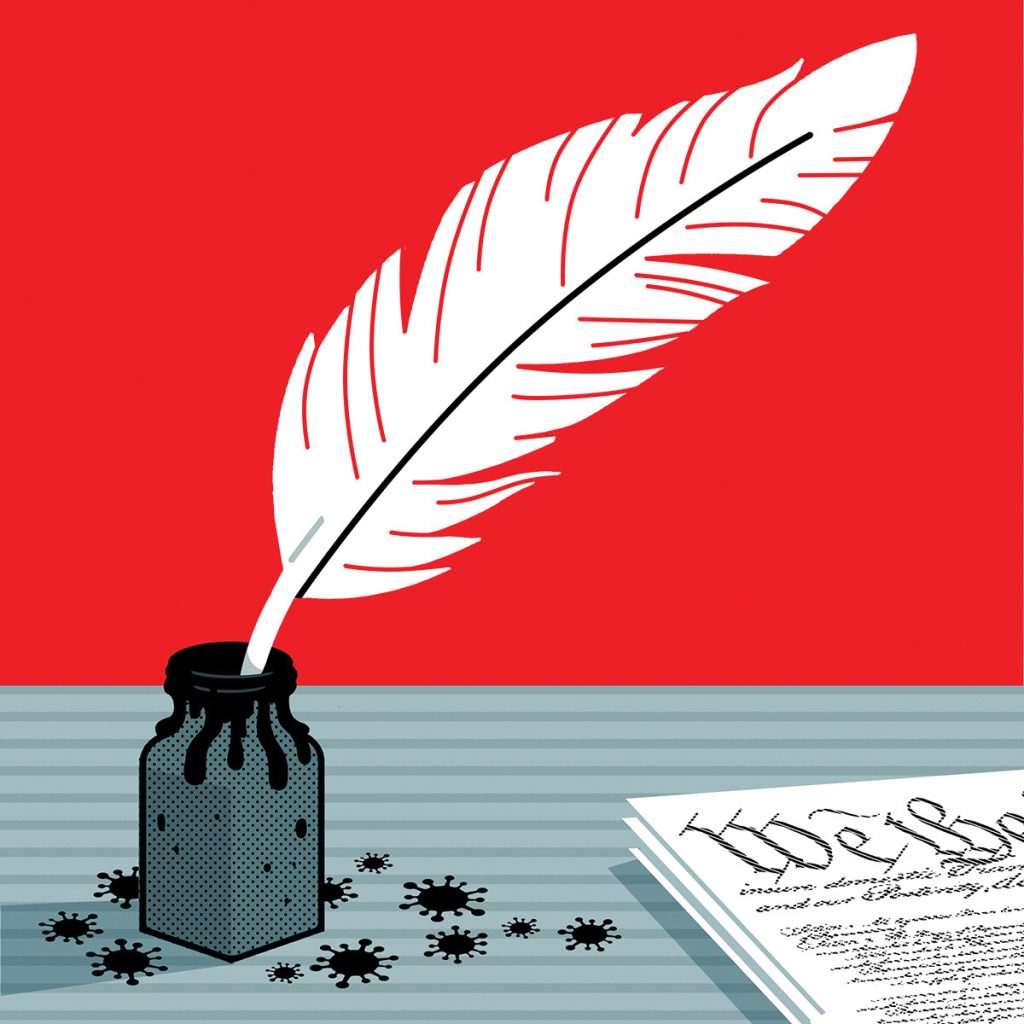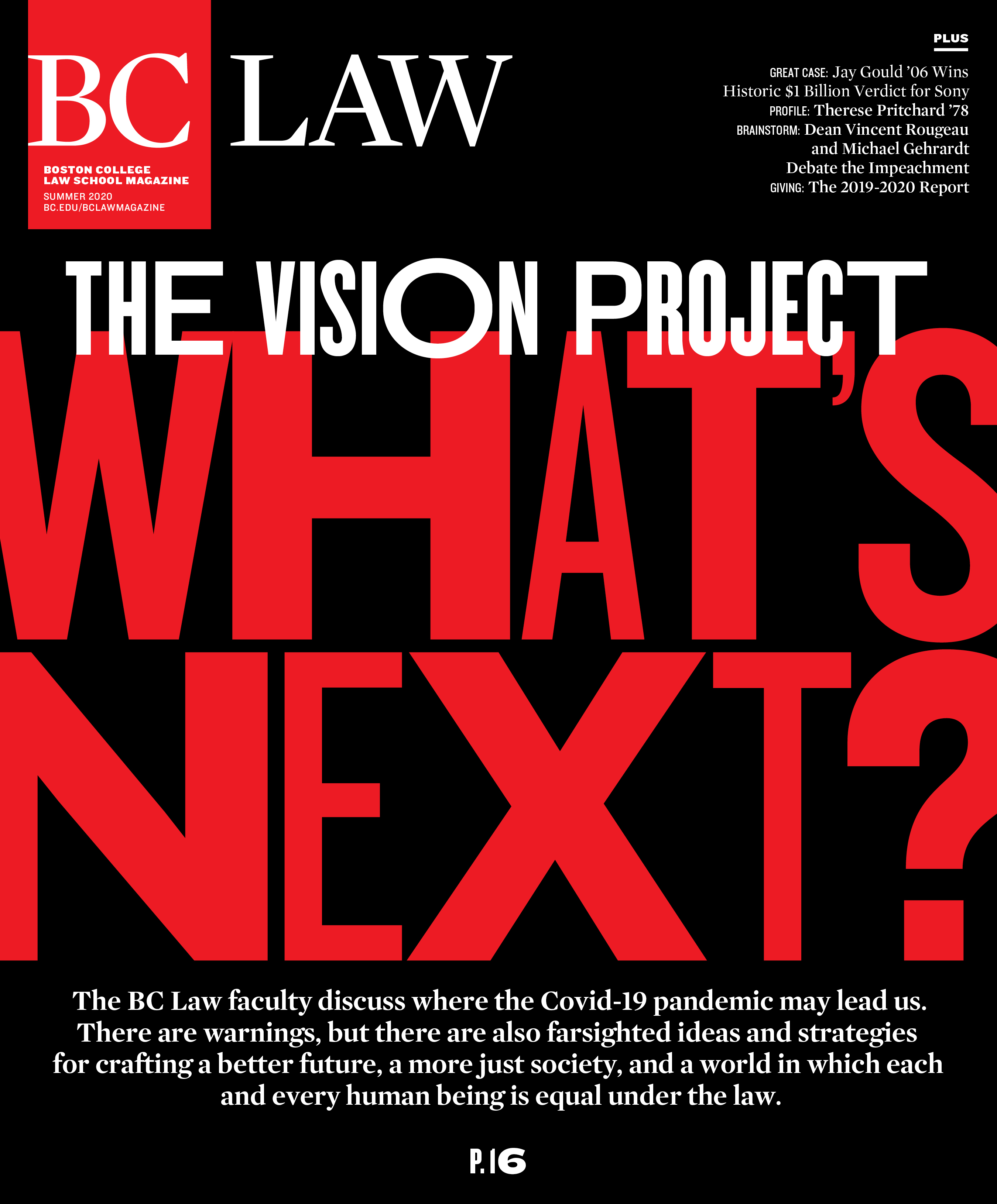
In this moment, public health and the public interest require us to act collectively to stop a deadly disease. Without a vaccine, the tools in our toolbox, at least on their face, restrict our freedoms. We have to be distanced from one another. We have to wear a mask. Church gatherings are limited. Businesses are closed.
In our system, freedoms—of speech, religion, and so on—can be limited to serve a compelling governmental interest assuming that the limitation is narrowly tailored to achieve its objective. But most people don’t recognize that rights-based discourse involves this sort of balancing act. When we see people saying, “I have a right not to wear a mask” or “I have a right to gather for protest or worship, or to visit my barber shop, even though it will hurt my neighbor or me”; when we see people brandishing assault weapons to protect the right of a business owner to open up or churches meeting in violation of a general ban on gatherings, these are situations in which the public understanding of rights differs from what the law actually says.
In addition to our misconceptions about the absoluteness of our rights, this moment also exposes how narrow our rights are. Many countries have a much more robust set of positive rights: to health care, to a dignified economic baseline of living. Here in the US we don’t think of those things as rights. But economic rights, the right to be safe from violence, and the right to be able to call your doctor when your kids get sick are at least as important to most people’s lives as more traditional constitutional rights.
So, on the one hand, our political rhetoric makes the rights we do have seem absolute. On the other, the rights we actually do enjoy in the United States are extremely thin and incomplete—because what really concerns most Americans during this pandemic are things the Constitution has very little to say about.
Because of misconceptions about our rights, we have been much less willing as a nation to make needed sacrifices to stop this disease. The notion of individual liberty as including the right not to wear a mask at the shopping mall in the midst of a pandemic is part of the reason we have failed so abjectly at controlling Covid-19—though an even bigger reason is corruption and idiocy at the top, particularly those of the president.
I’d like to see a notion of constitutional rights that includes pluralism and substantive equality. I’m hoping the pandemic drives home the idea that we’re in this together, that my ability to be safe completely depends on your ability to be safe and keep your family safe, and vice versa.
We need to start thinking about our rights in a much more robust way. Health care should be considered a fundamental right. Access to education should be considered a fundamental right. We need an economic safety net that isn’t full of holes. And those rights should be thought of as so fundamental that they are protected by the Constitution.
I would love for this moment to begin that discussion.
To read other pieces in this issue’s The Vision Project, click here.



